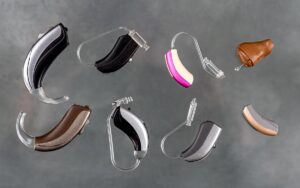Genetic predisposition, aging, and extended exposure to loud noise are all familiar factors that can contribute to hearing loss. But the connection between hearing loss and diabetes is not as well known. Let’s dig a little deeper into that.
How does diabetes increase your risk of hearing loss?
The prevalence of diabetes increases as you get older, and 37 million people, or 9% of the United States population, cope with this condition according to the CDC. Hearing loss is two times as prevalent in people with diabetes in comparison to individuals without the condition. 133 million Americans are pre-diabetic and even they have a 30% increased risk of developing hearing loss than people whose blood sugar is normal.
Diabetes can cause nerve damage across a variety of bodily areas, including the hands, feet, eyes, kidneys, and ears. Elevated blood sugar levels can cause the deterioration of small blood vessels and nerves in the inner ears. And on the other end of the spectrum, the transmission of nerve signals from the inner ear can be disrupted by low blood sugar. Both situations can contribute to hearing loss.
The lack of diabetes management triggers persistent high blood pressure, leading to damage to the heart, blood vessels, kidneys, nerves, and eyes.
Signs you might be dealing with hearing loss
Hearing loss frequently happens gradually and can go undetected if you’re not actively paying attention. It’s not uncommon for people close to you to notice your hearing loss before you notice it.
Some indicative signs of hearing loss include:
- Feeling as if people are mumbling when they talk
- Trouble hearing on the phone
- Struggling in noisy establishments
- Always needing to turn up the volume of your devices and TV
- Constantly needing people to repeat what they said
It’s essential to contact us for a consultation if you observe any of these signs or if someone points out your hearing changes. After performing a hearing examination, we will establish a baseline for future visits and help you with any issues you may be having with balance.
If you have diabetes, be proactive
We encourage anybody who has diabetes to get an annual hearing test.
Keep your blood sugar levels within the desired range.
Avoid loud noises and shield your ears by using earplugs.
[blogcta]





